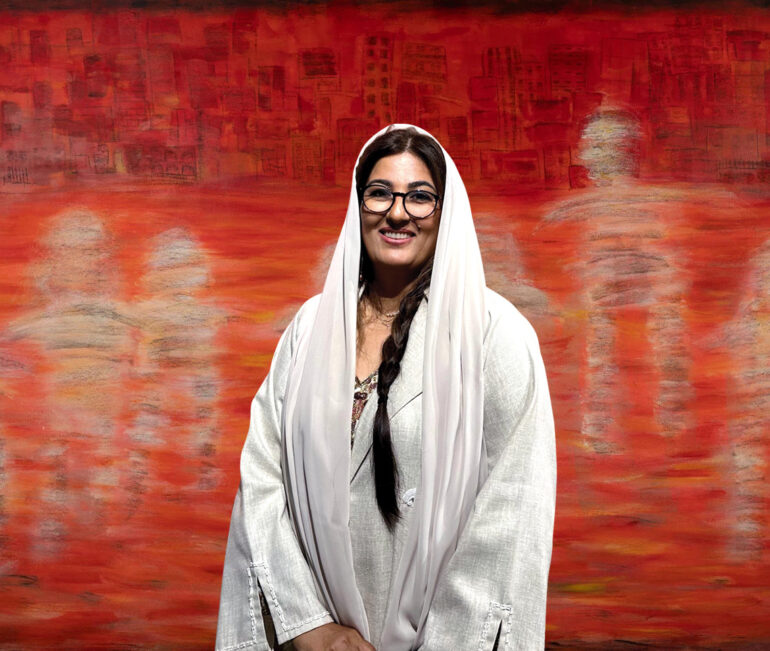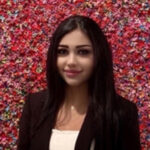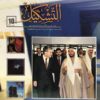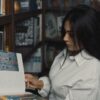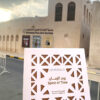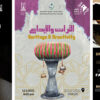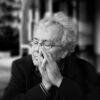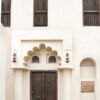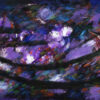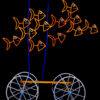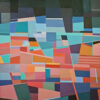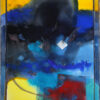A selection of artworks by
Nujoom Alghanem are on view
at Aisha Alabbar Gallery in Dubai
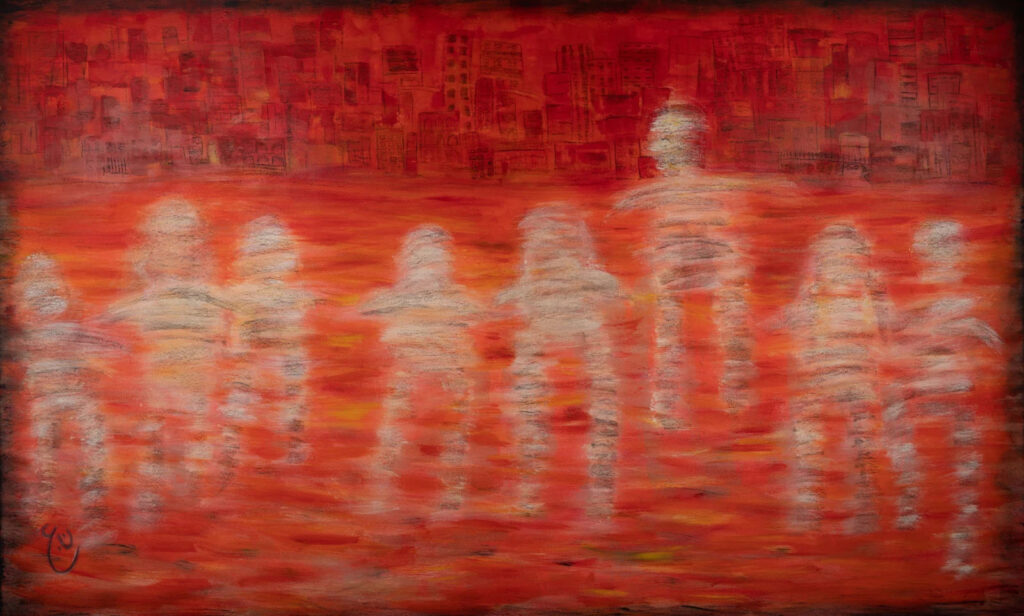
Reminiscence of a city and the Aesthetics of Urban Spaces
In line with the phenomenological perspective, urban spaces distinctly display the poetic and symbolic aspects of self-experience in all their temporal and spatial dimensions. In her works, Nujoom Alghanem constructs a world reminiscent of the numerous stages in her life, with its various sufferings, thoughts and repercussions. Inspired by her childhood recollections, the artist depicts spaces that are deeply engraved in her memory.
In order to convey the intimate and authentic elements of a city, which are tied to the spirit of the people living in it rather than its architecture, and which exist in imagination instead of reality, Alghanem deciphers the psychological imagery emanating from her inner self. The spaces in her city variously portray a cherished corner in the house, the street, window, door or balcony. Amidst life’s preoccupations and the frenetic pace of the city, the childhood home emerges with the intimacy that we long for in our adult lives even as we subconsciously project our deepest memories on the present.
The city serves as the artist’s starting point, it is the pillar and the cornerstone of humanity. It is an infinitely minute and yet an infinitely massive world, which she unites into a single entity in her work. In his book Aesthetics of the Place, Gaston Bachelard writes, “If I were asked to mention the main benefit of a house, I would say it protects daydreams and allows the individual to dream in peace… Without a house, a person becomes a fragmented being.”
Alghanem extricates the memory of a place from the depth of the self and its symbolic lexicon to construct her artistic work and fill its spaces with a deep expressive language. The outer essence of the city is embodied in Alghanem’s paintings by black and white lines, shapes and vibrant hues that alternate between red and yellow while searching for its temporal, spatial and human reference.
Seeking a safe haven
Within the ubiquitous skyscrapers dotting the cityscape, Alghanem searches for her individuality and a simple way of life forgotten in the quest for development. Amid a concrete jungle devoid of soul, she seeks a fundamental haven that makes her feel safe, a spacious horizon that can accommodate the yearnings in her soul.
In her paintings, the everyday scenes of city life are shaped from her memories, the intangible riches of the soul and the human existence that oscillates between the self and the vast outside to reveal the fragrant past and the beauty of the present. This creates space for the viewers to wonder and reflect on everything around them and to look for what lies beyond matter and appearances in terms of aesthetic and spiritual dimensions. Her work is an invitation to think and rethink our beliefs and our perception of reality. This edifice and aesthetic concept constructed by the artist stems from her memory, her childhood, and her upbringing. Alghanem is witness to the radical transformation of the Emirates, especially during the period in which she was living in the United States to pursue a bachelor’s degree. Her travels between the two countries during her student years allowed her to form a fresh-eyed perception of her homeland.
Alghanem feels she is always in confrontation with the ultra-modern city. “The city breaks into our lives and disturbs our inner peace. Instead of overlooking natural scenes, my house overlooks cement, stones and buildings that rapidly come into existence out of nowhere. We no longer see [vacant] places, we see new cities at every glance,” she says. She thus references time, rapid development, the diaspora period and the stage of transition between two different worlds and two different cities. “We have become identified within cities, and our souls have become wanderers in the city,” she adds.
For her, art is a vital aspect of the human experience, and wherever art exists, humanity is present in its many manifestations. “Art has an essence of its own, which connects us as human beings. The relationship is ambiguous and incomprehensible, and it is almost inherent because our innate affiliation with art is an essential part of our being that nourishes feelings and instigates creativity,” she says.
Countries longing for their inhabitants
In her works, Alghanem elucidates the overcrowding in cities, which boast of imaginative design and vibrant colours. Her paintings reflect the struggle between man and the environment, and between the inside and outside. Her artistic works resonate with her previous productions in film, art and poetry, and this can be perceived in her poem, titled Countries longing for their inhabitants:
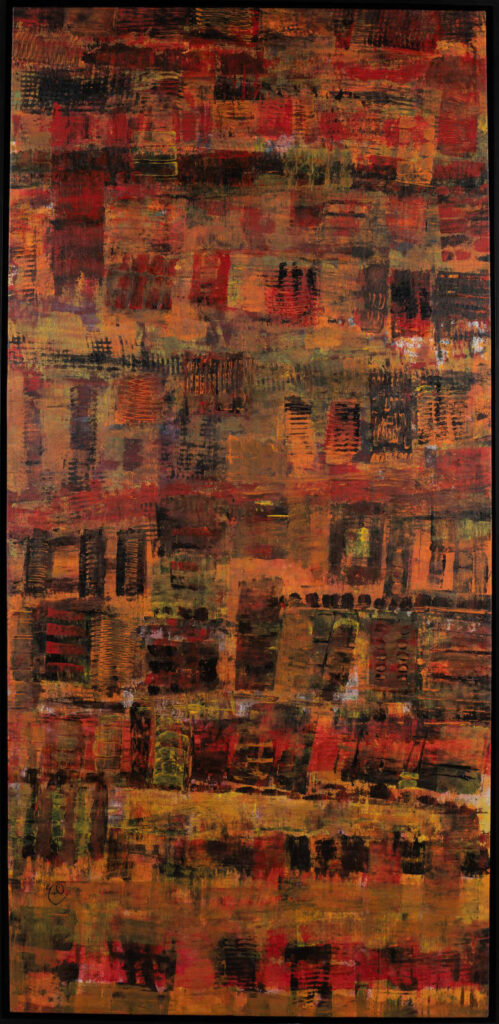
We think we are at peace
but our feet are rooted in our countries
Our heads are held high, we breathe fresh air
We think our dreams extend beyond the horizon
until we enter cities
Our souls get terrified
and lost in the narrow streets
We do not know from which gate to escape
Between Two Shores
Man and the city
The artwork titled Between Two Shores(2022–2023) represents a contemplative space for debate and dialogue about some issues that Alghanem used to raise. It is also the title of a documentary film (1999) that narrates the suffering of the last boatmen between the two Shores of Dubai Creek. Both works are extensions of a visual art project which interprets the city as the product of a social and human construct rather than of architecture and urbanism.
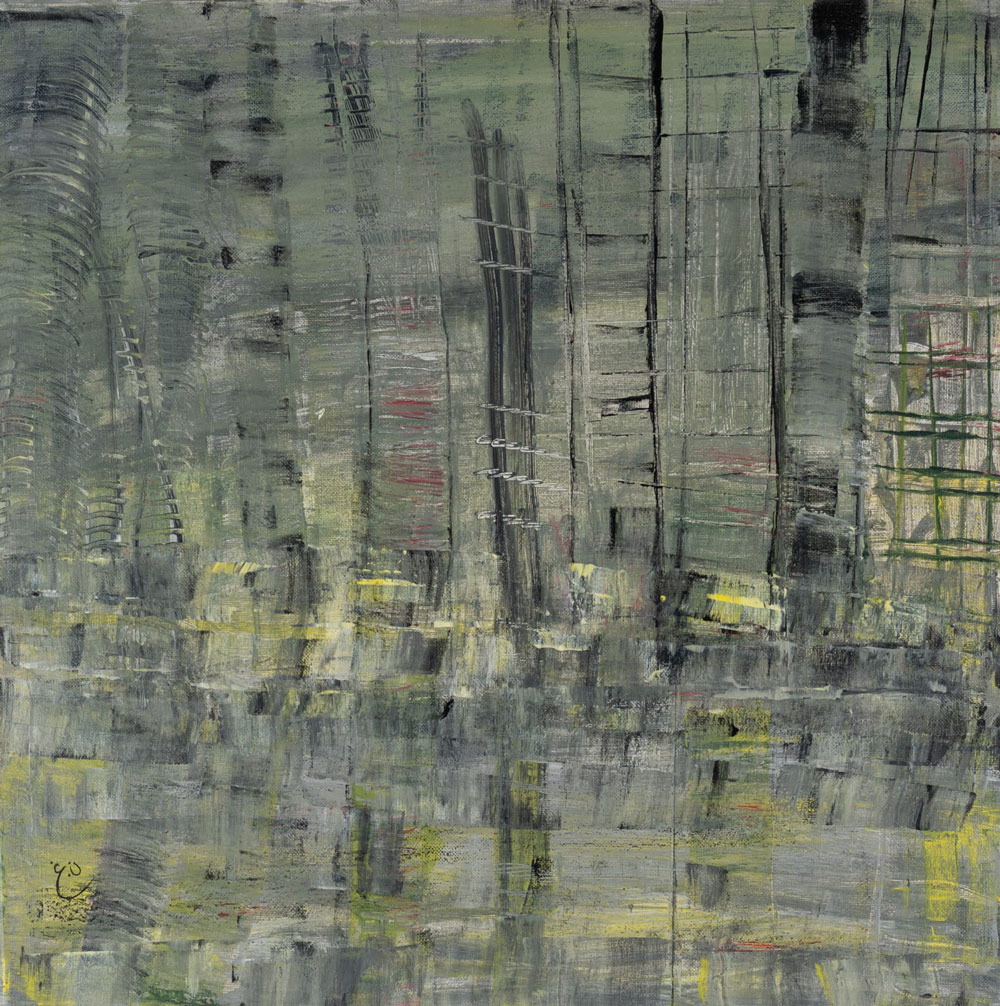
“This painting is a reflection of our reality and our existence, and it embodies the stage of transition from one shore to another, in which sometimes things appear clear and at other times seem to be mysterious. Sometimes we get wet with water and sometimes we do not as the journey takes us further than we can imagine. We may or may not arrive, and we may drown like many children who drowned while crossing, but their souls are still wandering in memory, space, water and cities, for some of us have reached other shore and some of us have not,” Alghanem says.
Unframed
Alghanem relies on her cultural heritage and understanding of the history of places and time to comment on the human condition through her intellectual and artistic approach. The past was established on its terms and the future is achieved on the shoulders of the present, therefore the past and the future are “out of the frame”. The artist applies this concept in her practice to establish a conceptual framework ranging between creativity and philosophy of life, in order to present her experiences through art, poetry and film.
Unframed is the title of the solo exhibition of Alghanem at Aisha Alabbar Gallery in Dubai, which includes a range of old and new artworks produced by the artist from 1994 to the present. However, her artistic experience dates back much further than that as she began her career in the mid-1980s when she produced some paintings and sculptural works in Al Mareija Studio in Sharjah after meeting the late artist Hassan Sharif. In January 1985, she cofounded the Aqwas Group, and in the same year, she participated in a one-day group exhibition at the Central Market of Sharjah as well as in Emirates Fine Arts Society’s fourth annual exhibition.
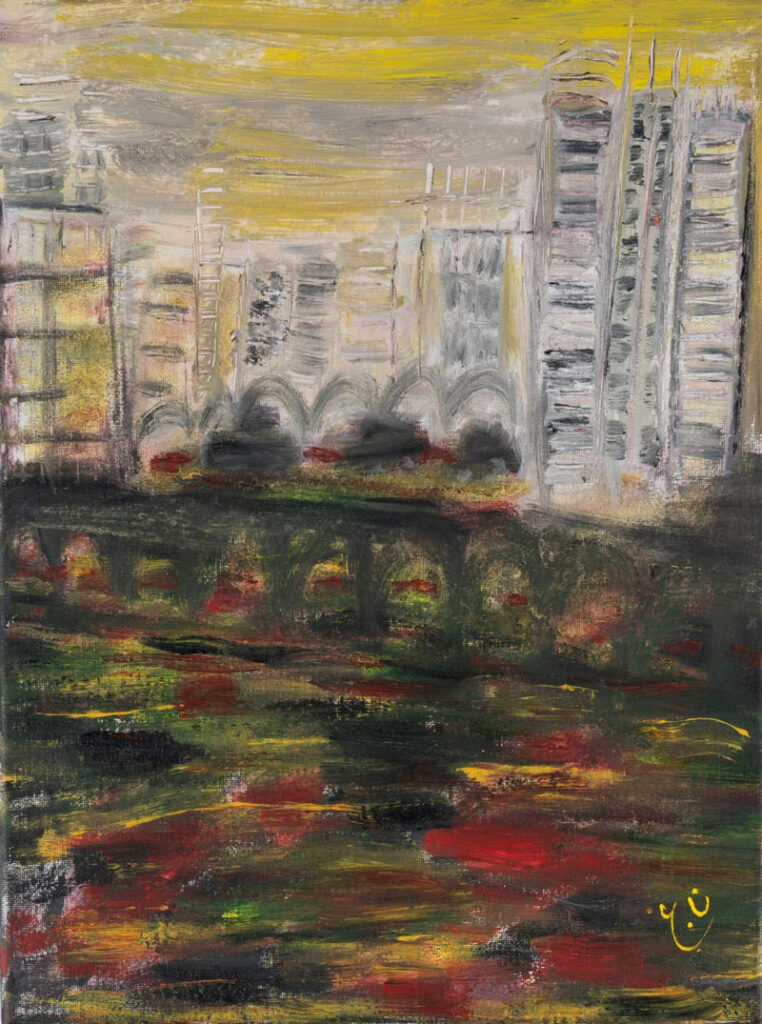
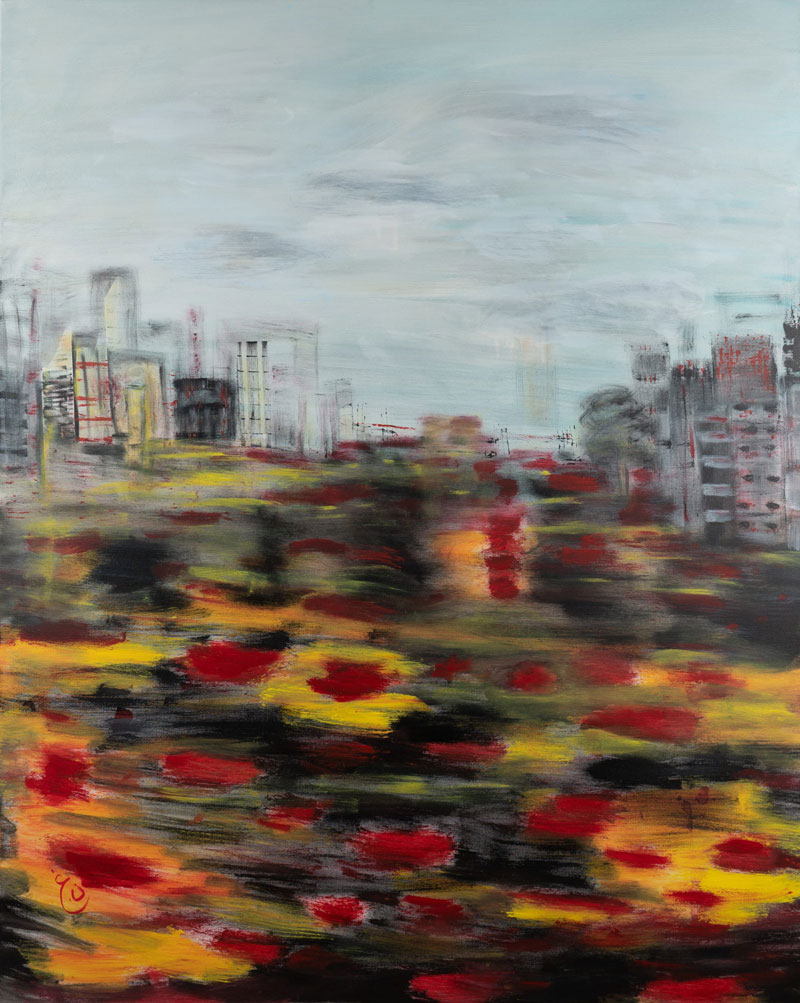
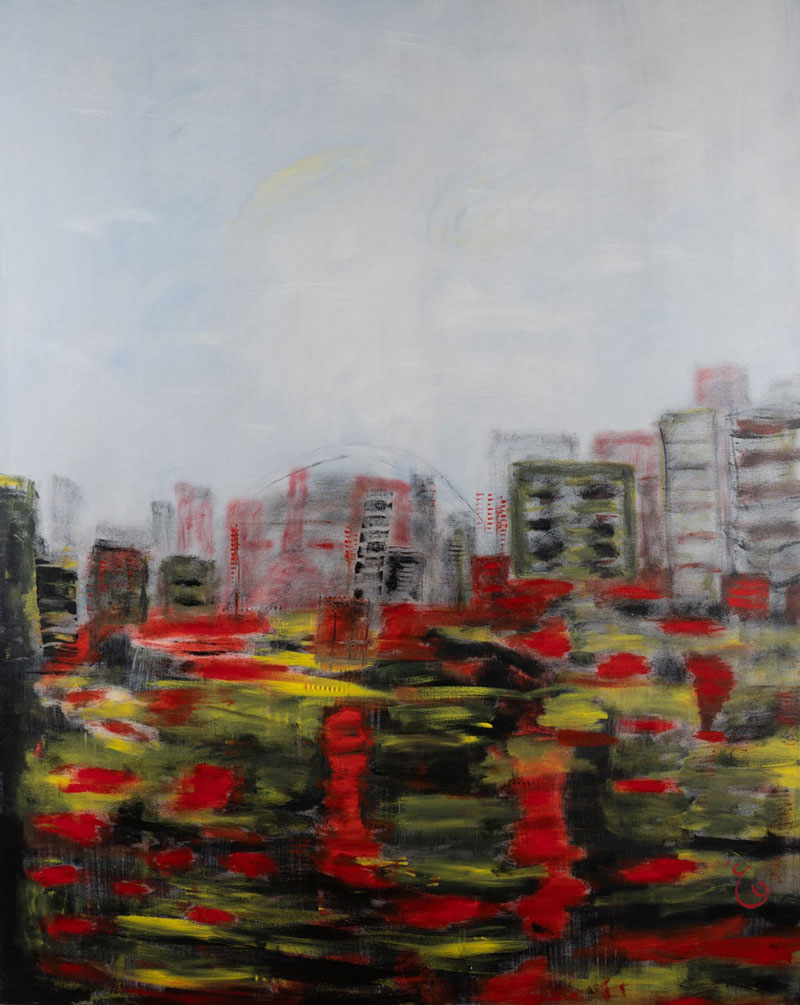
Alghanem has contributed to many creative and intellectual fields in the UAE. She has published eight collections of poetry and produced about twenty films, including seven feature-length documentaries, in addition to a number of feature films, short documentaries and art films. Most of her films have won regional and international awards. In 2019, she was chosen to represent her country as an artist, film director, and poet at the UAE Pavilion in the Venice Biennale, and in 2021 she held a solo exhibition titled Malamih – Faces, Phantoms, Expressions at Maraya Art Centre, which included more than 2,000 works of art.
A multitalented artist, writer, poet and director, Alghanem belongs to the generation of pioneers that paved the way for future generations. She is one of those artists who paints the philosophy of the coming time with colours and words.
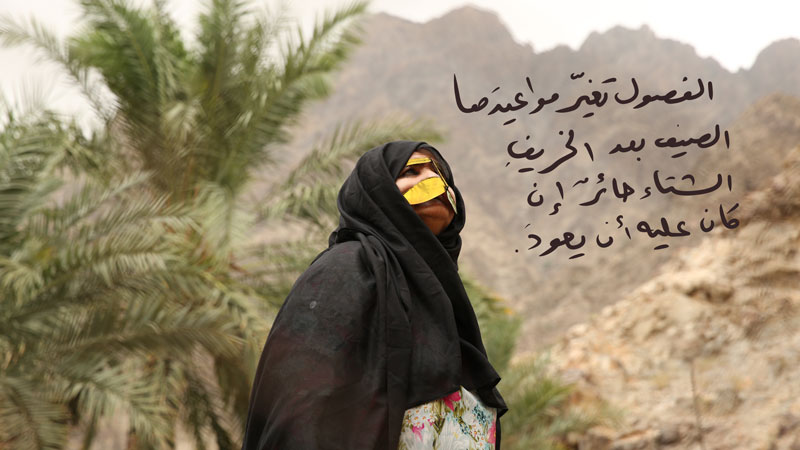
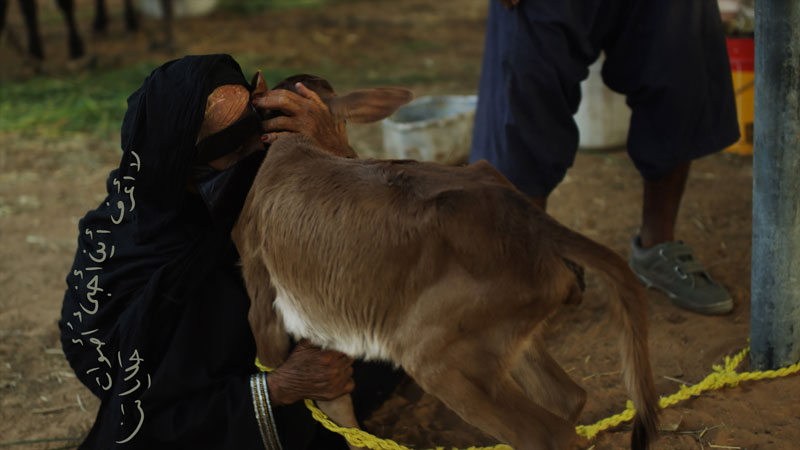
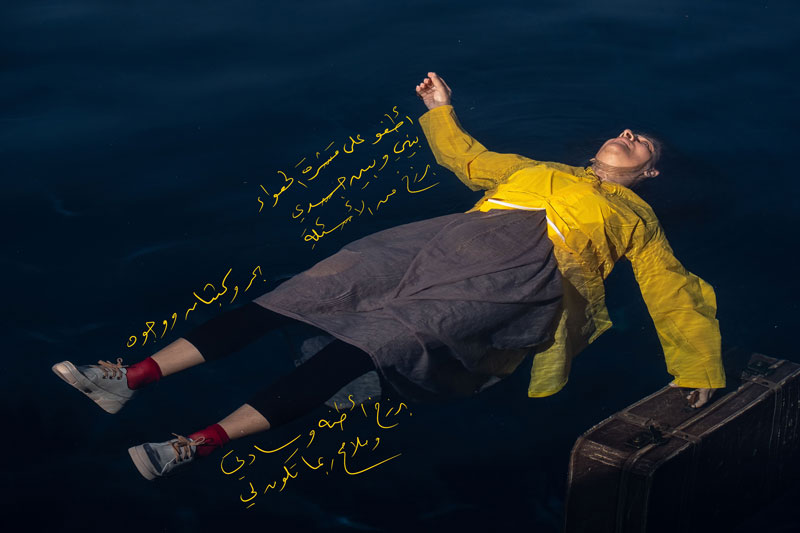
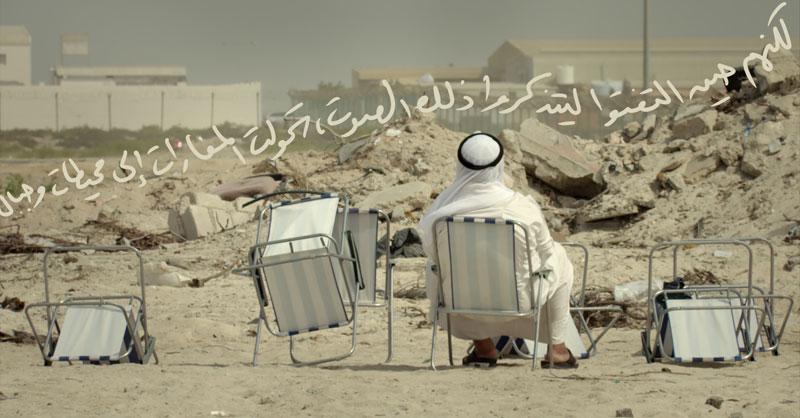
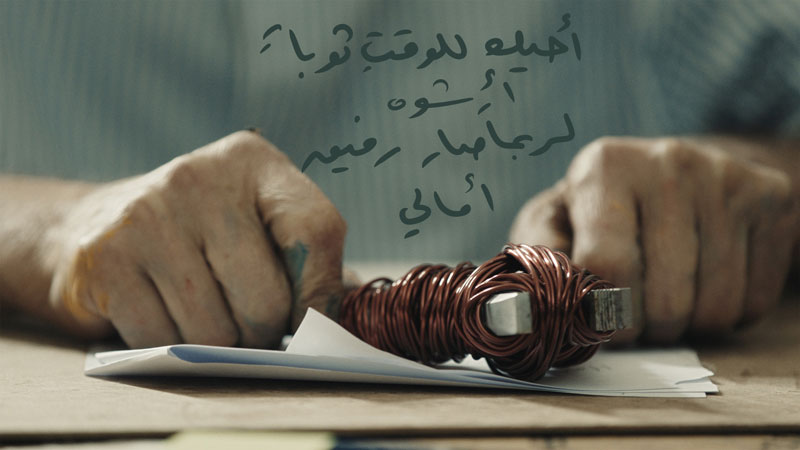
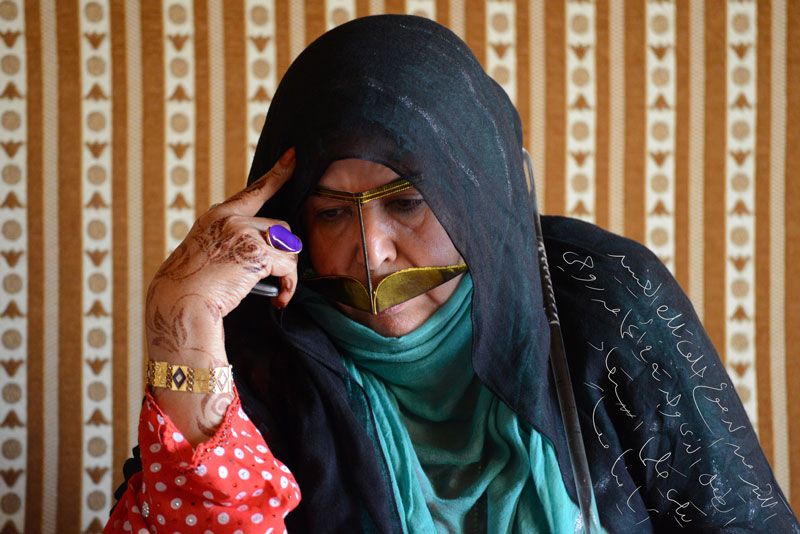
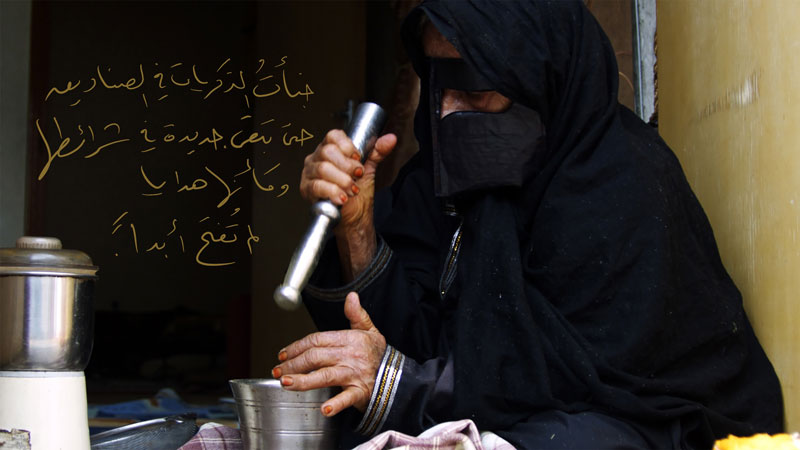
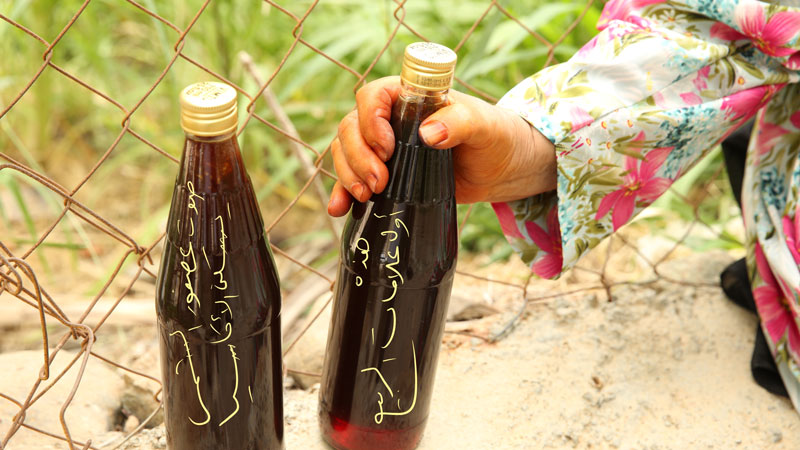
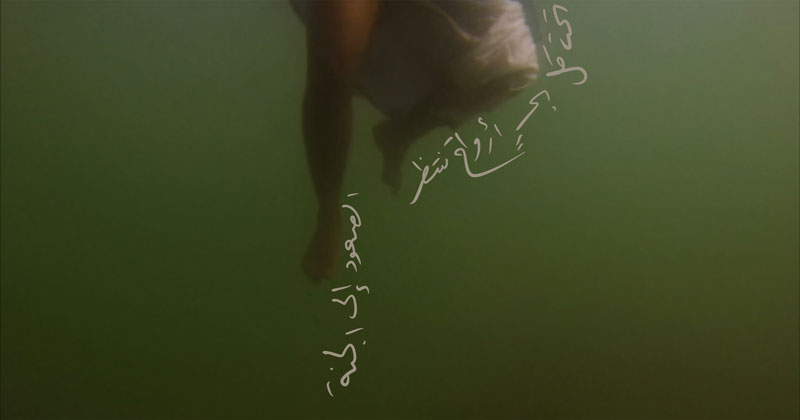
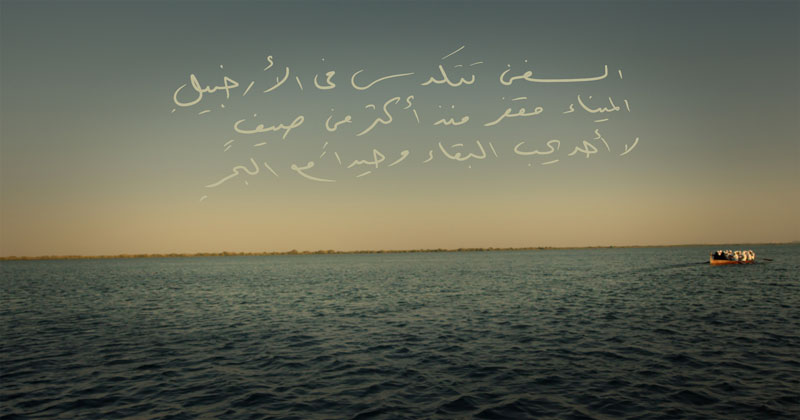
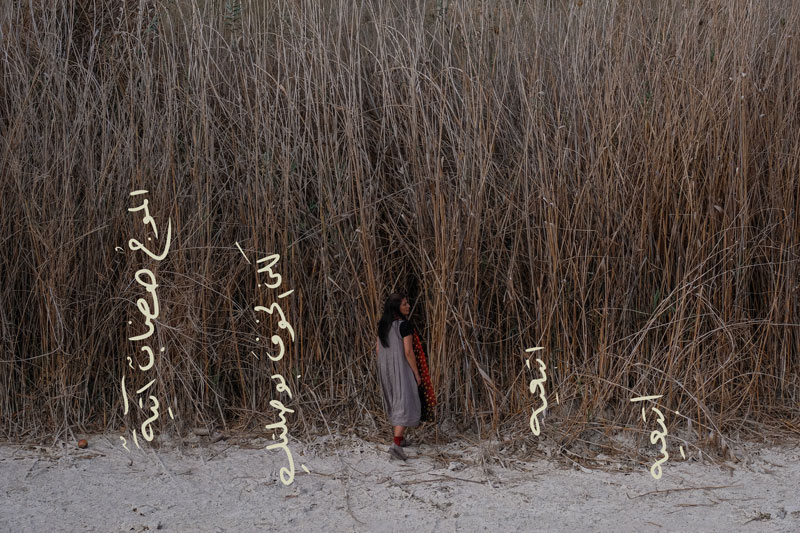
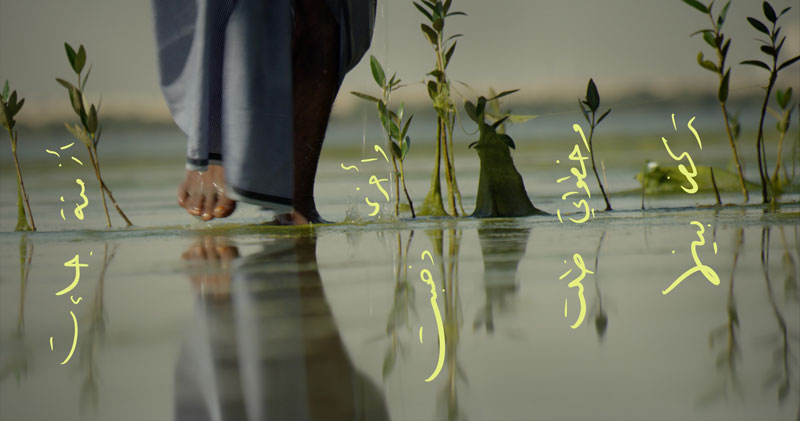
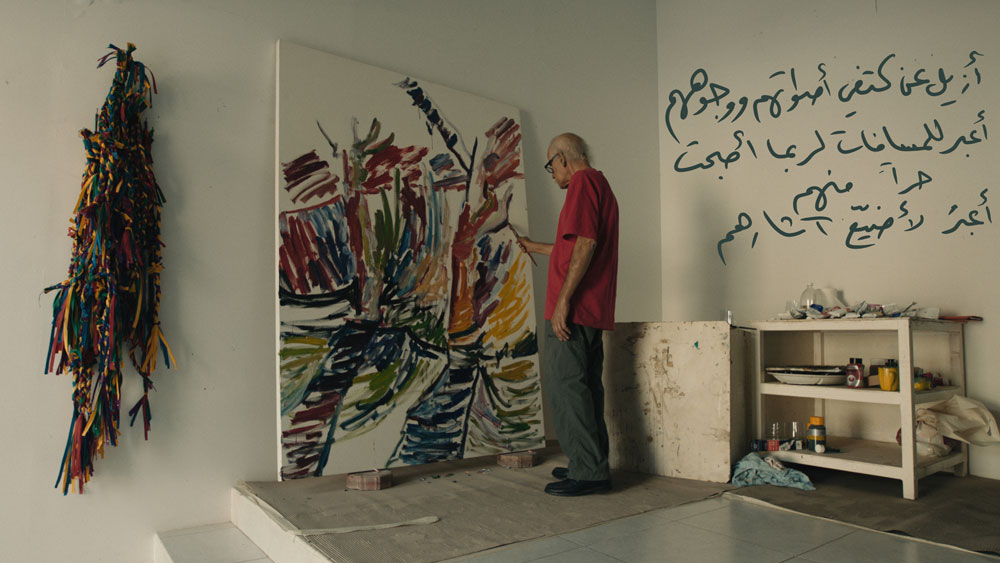
Dr. Noha Farran is the Founder & CEO of ‘Thinking Art’ Foundation’, Historian, Professor, Cultural Strategist, Researcher, Curator, Visual Artist & Chief Editor of Al Tashkeel magazine. Holding a Ph.D. with excellence in the 'Art & Science of Arts', an MFA in Fine Arts, and an MA in the philosophy of art, she has authored numerous published books and research papers documenting art in the Arab World.

